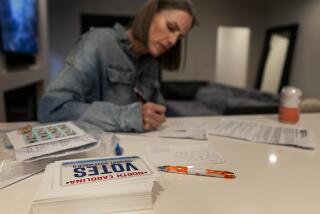Lost Innocence, Stolen Faith
Midmorning on a warm, late-summer day: I’d just finished jogging in Central Park and was standing at the corner of Amsterdam Avenue and 90th Street in Manhattan, dripping with sweat, waiting for the light to change. A 30ish woman with a small boy in tow stopped and said, “Could I ask you an enormous favor?”
Holding out a business envelope, she asked if I would be passing a mailbox.
She was neatly dressed, friendly, vaguely attractive.
And I’m an obliging sort of guy.
“There’s a mailbox on my corner,” I said, accepting the envelope with a smile. “It’ll be no problem.”
She thanked me warmly and we went our separate ways.
Truth to tell, I am not at my sharpest right after a run. It’s only after I’ve showered and dressed that my head clears and my synapses resume firing at normal speed.
So it didn’t occur to me until I was halfway across the avenue that the woman’s request didn’t add up.
Would I be passing a mailbox? This is Manhattan; how could I avoid passing a mailbox? They’re everywhere, as common as Starbucks.
Chances are the woman would have passed a mailbox herself in a block or two. But for some reason, she felt the wiser option was to entrust her envelope to a stranger. How could she be sure I wouldn’t cram it in my back pocket and forget about it, or toss it in the nearest trash can?
By the time I made the far curb, the hard facts in this blurred picture swam into focus: It was the anniversary of Sept. 11 and a woman I didn’t know had inexplicably asked me to mail a letter.
Was I being played for a dupe?
Neither the handwriting on the envelope nor the address--the human resources department of a company in midtown--yielded a clue to the puzzle.
Had this transaction occurred prior to last year’s anthrax scare, it wouldn’t have merited a second thought. But, as we are reminded endlessly by the media, by the long check-in lines at airports and by our lingering anxieties about anthrax and other mail-borne pathogens, we live in a changed world.
Should I have demurred at the woman’s request? I asked myself as I inspected the envelope for traces of white powder. Hell, no. Changed world or not, it is our willingness to smile back at strangers, perform small kindnesses and keep our paranoia in check that make life bearable, especially in this city. I wouldn’t have balked at rendering an easy courtesy like this a year ago. I sure wasn’t going to change my ways now. Otherwise--I felt a cliche coming on--the terrorists win.
Predictably, when I related the story to my wife and friends, there was a fair amount of smirking at my naivete: “Come on. Why would she hand you the letter when she could mail it herself?” Good question. “Maybe she looked at my face and decided she could trust me--same way I sized her up,” I said.
A friend who designs research projects speculated that I might have been an unwitting participant in a psychological study.
“The idea could be to see how people respond under varying circumstances,” he suggested. “Would a test subject be less willing to mail the letter if the woman isn’t accompanied by a child? What if she’s plain-looking or overweight? What if the person asking the favor is a man? What about a man wearing a turban?”
Tough questions. And, in all honesty, I can’t say with any certainty how I would have handled the situation with different variables. The woman on Amsterdam Avenue was Caucasian. Would I have been as receptive to a neatly dressed Semitic-looking man? I like to think I would; does that suggest I’m in denial? On the other hand, perhaps I would have begged off politely and directed him to the nearest mailbox. “There’s one up the street, same direction you’re walking.” Does that stamp me as a racist?
I can’t say. What I do know is that my liberal biases, which I’ve carried with me since grade school, no longer offer the comfort of easy answers. “Would you have turned her down?” I asked my friends. Even the most cynical admitted that they probably would have helped. “There you go,” I said.
I walked to the corner and released the envelope into the box. But before I did, I looked it over one last time. Nothing. Then I wiped it on my shorts to purge it of my fingerprints. I felt pleased at having done a favor for a stranger.
But there’s no sense taking chances.


